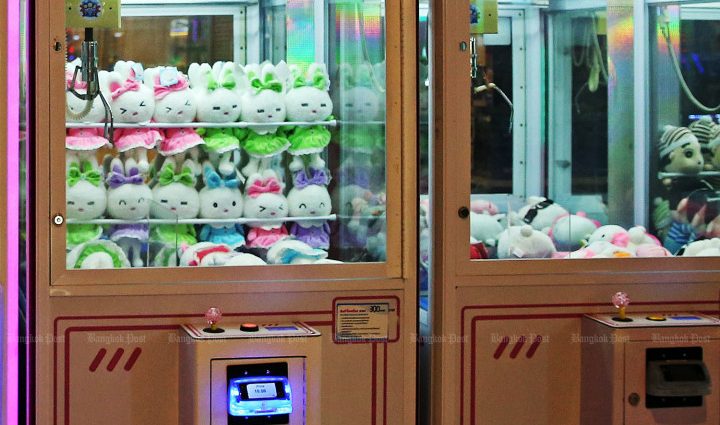
The government said it is willing to look into problems related to claw machines following recent police crackdowns amid concerns over youth gambling.
PM’s Office Minister Jiraporn Sindhuprai said yesterday the government welcomes public complaints lodged with the Office of the Consumer Protection Board (OCPB) if claw machines are found to be negatively affecting consumers.
She said the authorities are also monitoring social media for issues that may have repercussions on consumers, and appropriate measures will be put in place if risks are found.
This comes after a police crackdown on claw machines in several parts of Thailand. On Thursday, security officials in Nonthaburi’s Bang Yai district inspected the machines installed in public spaces such as malls and convenience stores.
District chief Surachai Kotbutdee said authorities discovered four claw machines accepting coins or banknotes ranging from 10 to 100 baht near Bang Yai City Market.
None of the machines had identifiable owners, and the authorities were unable to determine who was responsible for them. As a result, the machines were seized and handed over to Bang Yai police for further investigation and legal proceedings.
Mr Surachai cited the Gambling Act 1935, which classifies claw machines as gambling devices that can entice the general public.
Critics say the machines encourage negative behaviour, especially among youth, potentially leading to addiction, gambling, and irresponsible financial habits.
Mr Surachai said more machines will be seized and prosecutions made.
On Wednesday, Nakhon Nayok police reportedly seized 77 claw machines in the province. None were found to have the proper licences.
Lawyer Ronnarong Kaewpetch, chair of the social justice campaign network, said their legal status depends on how they function.
Machines where players must pay for a chance to win — without a guaranteed prize — are considered gambling. Conversely, machines that dispense a prize every time, regardless of its value, are not considered gambling and thus not subject to prosecution.
The lawyer pointed out that in 2020, the Interior Ministry issued an instruction to provincial governors, reiterating that claw machines cannot be legally licensed because of the country’s anti-gambling policy.
Some operators said they have obtained permission from local authorities, the lawyer claimed, but the Interior Ministry’s policy prohibits such licensing.
Operators who wish to fight their case and clear themselves of gambling-related charges must clearly declare how their machines operate, said Mr Ronnarong.
More investigations need to be conducted on how these machines are being imported into Thailand, he said.

